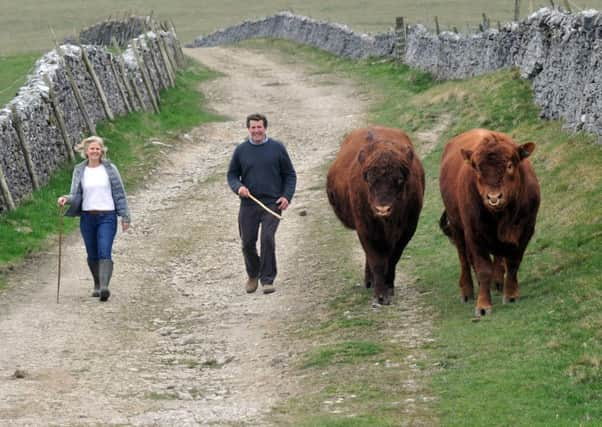Farming policy '˜on cliff edge without EU deal'


With early Brexit talks between Prime Minister Theresa May and leaders of the European Union showing signs that the negotiations ahead will be far from straightforward, not least regarding future trade, peers said a transitional trade deal between Britain and the EU bloc is vital to avoiding a “cliff edge” for farmers.
They predict that life outside the EU “will not be easy” for British farmers who rely on European support payments that are worth more than £1bn a year in total, saying the agricultural industry has an “enormous” challenge ahead.
Advertisement
Hide AdAdvertisement
Hide AdBoth the challenges and opportunities posed by the divorce from the EU are detailed in a report about the implications of Brexit on agriculture, published today by the House of Lords EU energy and environment sub-committee.
Lord Teverson, who chaired the sub-committee before the dissolution of Parliament, said: “Post-Brexit the UK’s agriculture and food sectors face enormous challenges. Life after the EU’s Common Agricultural Policy will not be easy for the many UK farmers who rely on its financial support.
“But leaving the EU is also an opportunity for the UK, and its constituent nations and regions, to move away from the EU’s ‘one-size-fits-all’ policies on farming and food. We will be able to really think about what we want to do with agriculture, food and the environment.”
The committee is, however, concerned about the capacity of the Department for the Environment, Food and Rural Affairs (Defra) to rise to the challenge of formulating appropriate British farming policies.
Advertisement
Hide AdAdvertisement
Hide AdPeers warn in their report: “Defra faces an enormous challenge in repatriating agricultural policy alongside fisheries and environmental policy, particularly given the heavy cuts in its budgets over recent years. Its role in relation to the agriculture sector will also increase significantly.
“The department will need significant numbers of additional staff, with appropriate expertise.
“We welcome Defra’s use of expertise from its agencies as an interim measure to inform policy development ahead of Brexit, but the department will need to secure sufficient long-term resource.”
The National Farmers’ Union welcomed the report.
Adam Bedford, regional director of the NFU in Yorkshire and the North East, said: “The Lords’ report on the agricultural implications arising from Brexit is timely, as farmers and growers in Yorkshire look towards what the future holds for the UK farming sector outside the EU.”
Union unveils election manifesto
Advertisement
Hide AdAdvertisement
Hide AdThe Report from the House of Lords EU energy and environment sub-committee comes just a day after the National Farmers’ Union published its own election manifesto.
The union represents more than 55,000 farmers from across the country.
The NFU’s report says that for every pound invested in British farming, the industry puts £7.40 back into the UK economy, but to protect that investment, which is a key priority in the union’s manifesto, is to make a success of Brexit.
NFU President Meurig Raymond said: “The success of British farming matters to the British electorate – especially at this time of unprecedented change.”